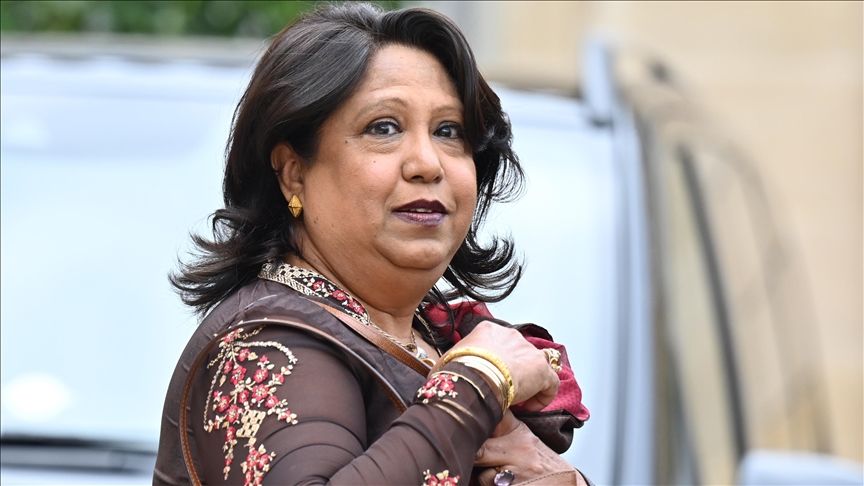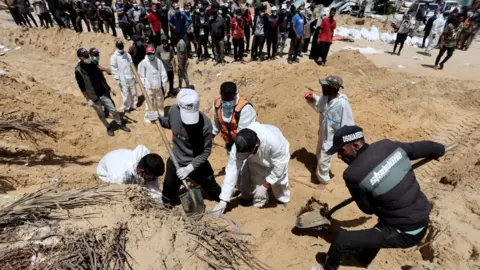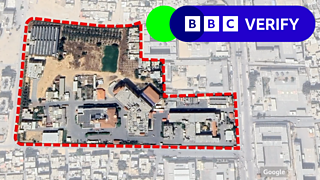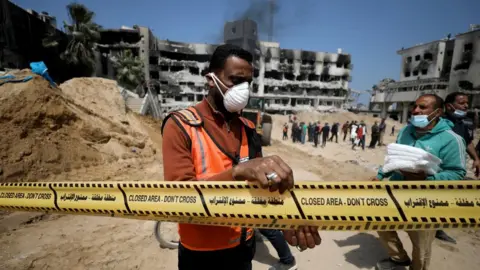Elites In The Global North Are Scared To Talk About Palestine
Israeli bombs continue to fall on Gaza, killing Palestinian civilians with abandon. Al Jazeera published a story about the destruction of 24 hospitals in Gaza, each of them bombed mercilessly by the Israeli military. Half of the 35,000 Palestinians killed by Israel were children, their bodies littering the overwhelmed morgues and mosques of Gaza. The former United Nations assistant secretary-general for human rights Andrew Gilmour told BBC Newsnight that the Palestinians are experiencing “collective punishment” and that what we are seeing in Gaza is “probably the highest kill rate of any military, killing anybody, since the Rwandan genocide of 1994.” Meanwhile, in the West Bank section of Palestine, Human Rights Watch shows that the Israeli military has participated in the displacement of Palestinians from 20 communities and has uprooted at least seven communities since October 2023. These are established facts.
Yet, these facts—according to a leaked memorandum—cannot be spoken about in the “newspaper of record” in the United States, the New York Times. Journalists at the paper were asked to avoid the terms “genocide,” “ethnic cleansing,” and “occupied territory.” Indeed, over the past six months, newspapers and television shows in the United States have generally written about the genocidal violence using passive voice: bombs fell, people died. Even on social media, where the terrain is often less controlled, the ax fell on key phrases; for instance, despite his professions of commitment to free speech, Elon Musk said that terms such as “decolonization” and phrases such as “from the river to the sea” would be banned on X.
Silence on the College Campuses
At the University of Southern California (USC), Asna Tabassum, a South Asian American, was to deliver an address on campus to 65,000 people as the valedictorian of the class of 2024. Involved in the conversation around the Israeli war against the Palestinians, Tabassum was targeted by pro-Israeli activists who claimed to feel threatened. On the basis of this feeling of endangerment, whose source the university refused to disclose, USC decided to cancel her speech. In a thoughtful response, Tabassum—who majored in biomedical engineering and history (with a minor in resistance to genocide)—implored her classmates “to think outside the box—to work towards a world where cries of equality and human dignity are not manipulated to be expressions of hatred. I challenge us to respond to ideological discomfort with dialogue and learning, not bigotry and censorship.” Tabassum is 21 years old. The USC provost who canceled her speech, Andrew Guzman, is 56 years old. His reasons for shutting her down are less mature than her plea for dialogue.
College students across the United States have been trying desperately to raise awareness about what is happening in Gaza and have sought to get their campuses to divest from companies with investments in Israel and in the Occupied Palestinian Territories. Early protests were tolerated, but then U.S. politicians got involved with congressional hearings and rash comments about these students being funded by the Chinese and Russians. College administrators, afraid of their donors and of political pressure, buckled and began to censor the students from one end of the country (Columbia University) to the other (Pomona College). College presidents invited local police departments onto their campuses, allowed them to arrest the students, and suspended them from their colleges. But the mood is undeniable. Student unions across the country—from Rutgers to Davis—voted to force their administrations to divest from Israel.
What’s Repugnant?
On April 12, 2024, the Berlin police closed a Palestine conference that brought together people from across Germany to listen to a range of speakers, including from other parts of Europe and from Palestine. At the airport, the police detained and then deported the British-Palestinian doctor, Ghassan Abu Sitta, who had volunteered in Gaza and had witnessed the genocidal war firsthand. The former Greek finance minister Yanis Varoufakis was to give an online speech at the conference. He was not only prevented from giving that speech, but also was issued a betätigungsverbot—or a ban from any political activity in Germany (ban from entry into Germany and a ban from doing an online event). This, Varoufakis said, is essentially the “death knell of the prospects of democracy in the Federal Republic of Germany.”
A few days before the conference in Berlin, Professor Jodi Dean published an essay on the Verso Blog called “Palestine Speaks for Everyone.” The essay is rooted in the simple, and unobjectionable, idea that oppressed people have the right to fight for their emancipation. This is the basis of the International Declaration of Human Rights, also cited frequently by Varoufakis. The day after the Palestine conference was shut down in Berlin, Jodi Dean’s employer, President Mark Gearan of Hobart and William Smith Colleges in the United States, published a statement announcing that Professor Dean cannot teach the rest of her classes this term. Gearan wrote that not only was he in “complete disagreement” with Dean, but he also found her comments to be “repugnant.” It is interesting that since October, Gearan has only released a public statement condemning Hamas, but nothing about the horrendous genocidal violence against the Palestinians.
What did Jodi Dean write that was so “repugnant”? Gearan focused on the word “exhilarating,” which Dean used to describe her reaction to paragliders that went beyond the Israeli occupation fence around Gaza. She did not actually celebrate the attacks of October 7, but merely used the paragliders as a metaphor to consider the politics of hope and liberation from a Palestinian standpoint (citing the last poem of Refaat Alareer, killed by Israel on December 6, 2023, with its meditation on kites to highlight the idea of soaring above oppression). Gearan did not want a dialogue about the occupation or about the genocide. Like the editors and publishers of the New York Times, like the German government, and like other U.S. college presidents, Gearan wanted to curtail conversation. Tabassum’s plea for “dialogue and learning” was muzzled; too scared to actually talk about Palestine, people like Gearan prefer “bigotry and censorship.”
By Vijay Prashad
Author Bio: This article was produced by Globetrotter. Vijay Prashad is an Indian historian, editor, and journalist. He is a writing fellow and chief correspondent at Globetrotter. He is an editor of LeftWord Books and the director of Tricontinental: Institute for Social Research. He has written more than 20 books, including The Darker Nations and The Poorer Nations. His latest books are Struggle Makes Us Human: Learning from Movements for Socialism and (with Noam Chomsky) The Withdrawal: Iraq, Libya, Afghanistan, and the Fragility of U.S. Power.















.png)
.png)
.png)